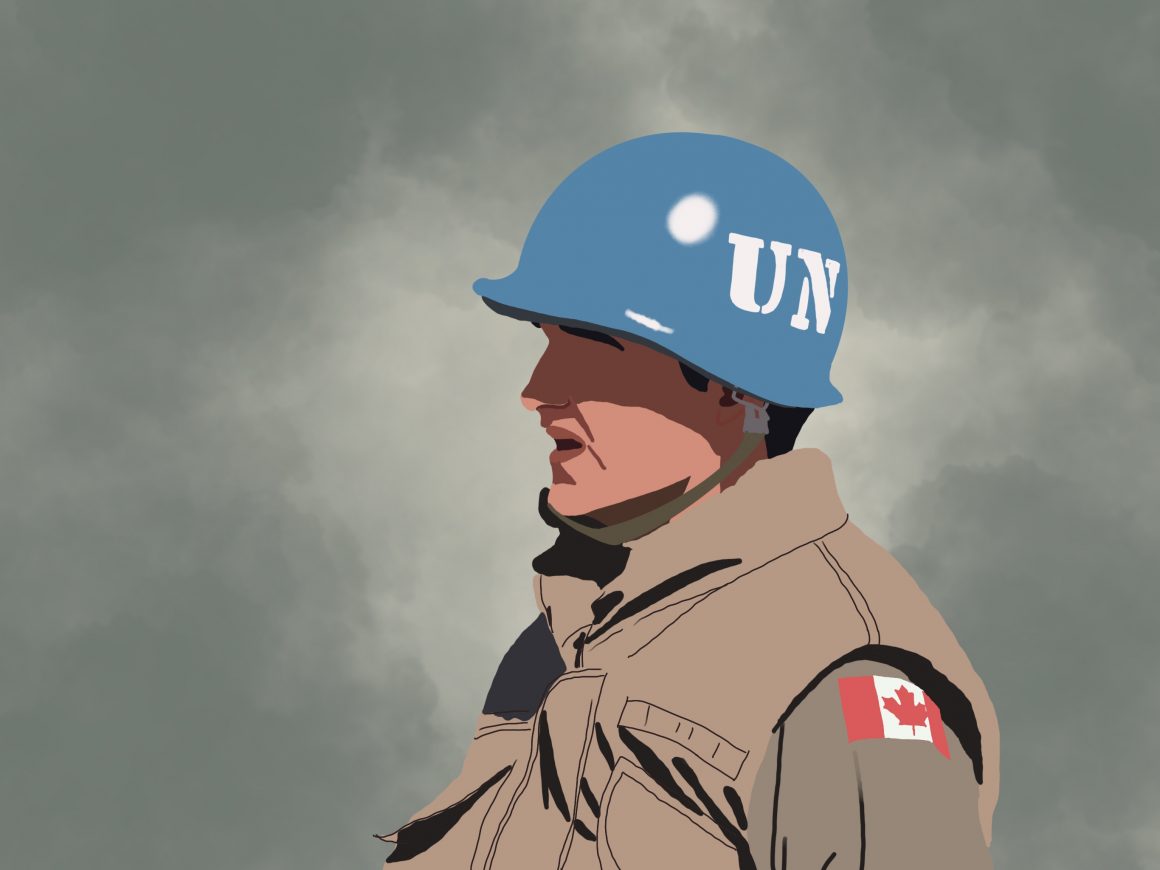
If all the world’s a stage then Canada isn’t even a player
By Logan Jaspers, September 5 2022—
Despite committing at November 2017’s UN peacekeeping conference to creating a Quick Reaction Force (QRF) of 200 Canadian peacekeepers in the next five years, the government quietly extended its deadline to create the QRF by a year while acting coy on the topic.
This may be surprising, given how integral peacekeeping is to the Canadian national psyche, even today when Canadian peacekeeping efforts are a shadow of its former self.
To date, Lester B. Pearson is the only Canadian Nobel Peace Prize awardee. Pearson won the award for his instrumental role creating the United Nations Emergency Force, the first large-scale UN peacekeeping force, which averted the Suez Crisis escalating. Despite domestic backlash against the initiative, Pearson persevered based on his convictions that Canada must try to help solve global issues.
Pearson’s vision of peacekeeping well encapsulates how ideal Canadian foreign policy balances reality with our values — Canada is decidedly a middle power that works within its means to cooperate with other countries and try to help make the world a safer, better place.
Despite this, Canadian peacekeeping has declined precipitously since the 90s — the 3336 Canadian peacekeepers in 1993 has dwindled to 35 in 2020 thanks to the slashed budgets and apathy of liberal and conservative governments alike.
Though regrettable, the decline of peacekeeping in the 90s and 2000s at least fit the political climate of the times. The torture and murder of a Somali teenager by Canadian peacekeepers, the failure of peacekeepers to stop genocides in Rwanda and Bosnia in the 90s, and the cynical atmosphere of fear amid the War on Terror in the 2000s meant that the role of peacekeepers in the modern world was uncertain at the time.
However, after ousting Stephen Harper in 2015, Prime Minister Justin Trudeau called upon Wilfrid Laurier’s “sunny ways” and said in his victory speech “I want to say to this country’s friends all around the world, on behalf of 35 million Canadians, we’re back.” It was clear that Trudeau’s victory was supposed to mark a renewal of a friendly, cooperative Canada. Indeed, the liberals in 2015 ran on criticizing the conservative neglect of peacekeeping while promising to increase Canada’s peacekeeping capacity.
The promise to create a QRF in 2017, let alone the pledge to increase Canadian participation in peacekeeping, was proposed in conjunction with Trudeau’s bid for Canada to gain a temporary seat on the UN Security Council. The peacekeeping promises were a way to try to get member states to elect Canada to a seat. However, the promises weren’t enough — the bid failed and a Canadian QRF is no closer now than it was five years ago.
If the Security Council bid was genuine and not just about inflating Canada’s national ego, the creation of a QRF, let alone substantially increasing our peacekeeping efforts altogether, would have been a forgone conclusion. If Canada wants a leadership role internationally, it must actually engage in leadership, not merely hunting prestige while offloading responsibility onto others.
The failure to keep promises are criticizable enough, but the QRF incident is likewise emblematic of the pervasive trepidation of Canadian foreign policy, where Trudeau talks the right game but struggles to live up to our words. Just like peacekeeping, Trudeau talks big on human rights, but crumples beyond rhetoric. Canada feebly condemned Saudi human rights abuses with the language of “grave concern” and “alarm” yet Trudeau still illegally arms Saudi Arabia’s illegal war in Yemen.
By contrast, despite Canadian statements emphatically opposing Russian aggression in Ukraine, Canadian material support for Ukraine has been mixed. Though Chrystia Freeland’s efforts to kick Russia from global banking were praiseworthy, Canada has blundered other parts of our response. While evacuating Canadian embassy staff in Kyiv, Global Affairs Canada ordered the diplomats to abandon Ukrainian employees while simultaneously refusing to arm Ukraine until full-blown war began. And when Trudeau personally reopened the Canadian embassy in Kyiv to showcase Canada’s “unwavering support” for Ukraine, months later it remained closed.
Despite Trudeau saying that Canada was back in 2015, our back has amounted to little more than pandering theatrics. Unkept promises worsen trust in us, and words without action are fruitless. Those of us who believe in Pearson’s vision of Canada — a Canada that supports multilateralism in the name of helping make the world a better place within our means — should expect the government to do better and follow its promises. Canada ought to not only create a QRF, but also make a serious step towards significantly contributing towards peacekeeping efforts once again.
This article is part of our Opinions section.
